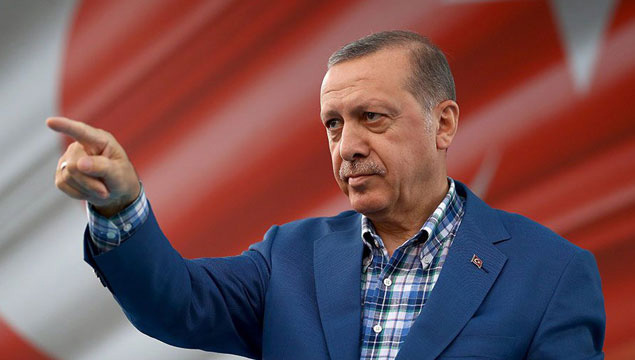Both the world and Turkey are struggling with crises. Global clashes of politics, economics and cultures are reflected in every aspect of our lives. As humanity attempts to move from an industrialized to information society, a series of crises of climate change, food and energy shortages, and regional and global migration undermine our very foundations.
Turkey is facing these multiple crises with its old institutions and rules. It has not yet had the transformations of mentality in terms of education, law, secularist state and gender equality that are the requirements of the industrial age. What’s more, Turkey has to handle the uncertainty and chaos of this tangle of crises with politicians who are unable to overcome their mindsets of political polarization and identity politics.
While the pandemic and the following economic crisis have started to silence the identity politics and given a louder voice to the issues of class tension, injustice and poverty, politicians once again drag us towards identity and polarization.
The opposition parties in Turkey cannot find time to compete with the government, led by President Recep Tayyip Erdoğan who has held power since 2014, as they are busy fighting among themselves. People are trying to get rid of the heavy chains of polarization and identities, but politics is putting them back in chains.
We are in a maelstrom in Turkey. The cost of living and poverty are high while hope for tomorrow is low. Honest work and morals are no longer favored for climbing up the social ladder, nor are they effective. Poverty is spreading, deepening, being transferred between generations.
Divided nation
We have come a very long way. Society has changed, but we still debate the same subjects, such as the rule of the law, secularism, education, social justice, and the Kurdish issue. We still cannot even condemn the sexual abuse of a minor unanimously. We have lost our shared vision. We cannot even share the same feelings or joy in a song or a joke.
We have collected many disappointments. Also, we learned to delay our hopes. Now, as we start a new year, my new year’s wish is not to leave our hopes as our legacy. Let us not only rely on the ingenuity of the political leaders to make our dreams happen. Let us not wrongly believe that we will elect a president and everything will be alright. Let us know that we will experience whatever we are going to experience in this country thanks to the involvement and efforts of each of us.
We have learned things from such disappointments. We have our experiences, our collective memory. Never believe those who say society has a short memory: the memory is not short, but people are afraid to remember. People are pretending to have forgotten things because they are not sure about how to deal with them when they remember.
Trust Issues
Of course, society has stereotypes, too. Its connection to reality has been disrupted. People may believe that the COVID-19 vaccines are manipulating our genes, but the majority of the people have nothing to do with such nonsense. People are against other people who are different to them when they are asked who do they would want as neighbors or business partners, but that’s the same everywhere in the world.
For example, almost five percent of Turkish people say they would not want to be in-laws with the people who vote for the ruling Justice and Development Party (AKP) or the main opposition Republican People’s Party (CHP). Trust is always low in such polls. But, take a look around, does anybody file for a divorce because their in-laws are voting for the other party?
Our people are eager to be individuals, but wary of being citizens. . People do not do certain things because the institutions are lacking, because they do not trust in the rule of law, because they fear how the police and judges would treat them according to how they are dressed, because they are afraid in the streets.
The people of this country want justice. The poor want justice of income; youth and women want the justice in representation; the Kurds want justice for the recognition of their existences. But everybody wants justice.
At the same time, everybody prioritizes the health and order of their own households. People want to be involved in production, share the wealth and have better economic growth and fairer distribution of income. Also, everybody is scared to death of climate change, drought, the food crisis, homelessness and being old and needy of care. Believe me, it does not matter being a Turk or Kurd, religious or atheist, man or woman, educated or uneducated when it comes to these fears. Everybody wants civilization, prosperity and justice.
What we can do, and should do, is to force the politicians. We should try to be involved and active in politics. Besides that, we should fight against the society’s fears and inaccurate beliefs instead of mocking them or ignoring them. More importantly, we should believe in this country, this society and the shared future.
worldcrunch.com
